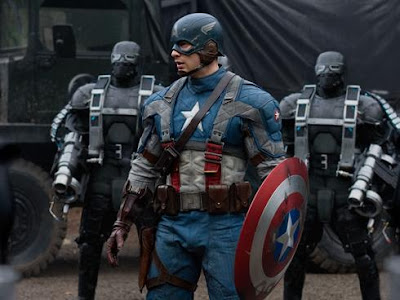
Moviegoers will see a various type of superhero in
Captain America: The first Avenger when full-length trailers for the film premiere these days in theaters.
On the Captain America set in this city in northwestern England, which stands in for 1940s Brooklyn, weakling wannabe soldier Steve Rogers gets an injection that turns him into a brawny, herculean fighting machine. It's the birth of Captain America, played by Chris Evans.
"Steve has been dealt type of a lousy hand in life," Evans says. "He's 5-foot-nothing. He's 110 pounds. He's got a lot of ailments, but it hasn't made him bitter or jaded or anything. Even following he's given this fantastic gift, he still continues to do the proper factor, not to prove anything to anybody apart from himself. He just has this fantastic moral code."
The Marvel Comics character began in March 1941, prior to the USA entered World War II. "The initial cover issue of Cap punching Hitler was definitely a political statement," says producer Stephen Broussard (The Incredible Hulk). "Like today, the country was divided and there were individuals who thought we ought to go over there and do the proper factor, and there had been others who said it was Europe's war and to stay out of it."
The new film, set for release July 22, remains faithful to that origin. Cap's first assignment from the U.S. government would be to be the centerpiece in a traveling stage show, raising morale and money within the form of war bonds.
Eventually, he finds he has to break off on his own to fight the German menace - especially a harmful new foe played by The Matrix's Hugo Weaving, a Nazi technology officer known as the Red Skull, the guinea pig for a similar super-soldier experiment gone awry.
"
Captain America was invented essentially for American propaganda. I mean, who was going to be like, 'Nah, the Nazis, they were OK. They had a couple of (great suggestions)!' " Evans jokes.
"It's safe to say we can all agree it is pure evil, right there. So it's great to create a character of pure great, pure honesty and true morality, and say this is ultimate poor against ultimate great."